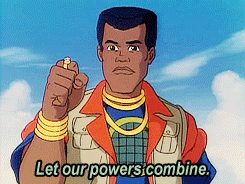
https://twitter.com/hashtag/WeWillShootBack?src=hash
CHARLESTON— The murders that took place here on Wednesday night have left some black Charleston residents struggling with a visceral fear.
Not just because all nine victims were black, and the white suspect, Dylann Roof, had been photographed wearing flags of racist states. Not just because the location of the murders, Emanuel African Methodist Episcopal Church, is a historic symbol of black freedom that has been attacked many times before. Not just because they feel churches should be safe spaces. Not just because Roof allegedly sat with members of the bible study group for an hour before he killed them. Not just because each victim was shot multiple times.
The fear stems from it all.
If you're afraid for your life, American citizens are told, call the police.
But Taurean Brown, the black man who popularized the hashtag #WeWillShootBack after the church massacre, doesn't think black people always have that option. Brown said police killings of unarmed minorities — including Walter Scott, Freddie Gray and Michael Brown in the past year — happen far too often for him to trust them.
And if the state can't protect black people, then Brown wants black people to protect themselves.
“We’re often the first ones that are called upon to be nonviolent," Brown, who lives in Durham, North Carolina, told Mashable. "I want to change the narrative to say that we have the right to defend ourselves, just like every human being.”
#WeWillShootBack has racked up more than 25,000 tweets since Wednesday's murders, but it's not the first time that phrase has been used.
We Will Shoot Back is the title of a recently published book by Akinyele Umoja, who heads Georgia State University's department of African-American studies. In it, Umoja chronicles the the armed resistance of black Mississippians in their struggle for freedom against intimidation and violence from their white counterparts.
But Brown said he isn't advocating for the random shooting of white people.
"What I’m saying is we have a right to organize ourselves, and defend our humanity," he explained. “We’re taking the power into our own hands, and not allowing another entity go do that for us.”
Brown is in favor of black people owning legal weapons, and posting trained armed guards at places such as Emanuel AME Church, which has historically been attacked by racists.
In the days following Wednesday's murders, response to #WeWillShootBack among those congregating around the church was mixed.
Wendell Green, a lifelong Charleston resident, told Mashable that posting armed guards at historically black churches made sense to him, even though it would be giving in to fear.
"The way society is now — I guess depending on the location — people would consider that, knowing the history," Green said. "The church, it's been burned to the ground."
Sina and Shawn Howell were silent for a moment, as they considered whether armed guards should be at black churches. The married couple, from Lancaster, Pennsylvania, disagreed with each other.
"You going to put an armed guard at every black church across America?" Shawn asked. "I don't think that will control ignorance."
But Sina seemed less concerned about ignorance than she did with her own safety and that of black communities. Sina started getting emotional at the thought, then said she's fine with anything that will make her feel safe.
"If we can do something to protect ourselves, then absolutely."
Last edited:
 had to happen eventually. Strap up legally; that'll likely be a good enough deterrent to future offense on its own.
had to happen eventually. Strap up legally; that'll likely be a good enough deterrent to future offense on its own.




 they really will shoot back
they really will shoot back 

